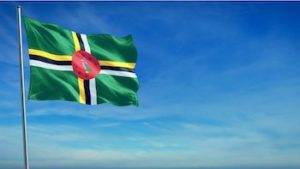
*On this date in 1978, Dominica gained Independence from Britain. Dominica, officially the Commonwealth of Dominica, is an island country in the Caribbean.
The island was settled by the Arawak indigenous people arriving from South America in the 5th century. The Kalinago displaced the Arawak by the 15th century. It was later colonized by Europeans, predominantly by the French, from the 1690s to 1763. Through the Middle Passage, the French imported enslaved blacks from West Africa to Dominica to work on coffee plantations. Great Britain took possession in 1763 after the Seven Years' War and gradually established English as its official language.
The capital, Roseau, is located on the island's western side. It is geographically situated as part of the Windward Islands chain in the Lesser Antilles archipelago in the Caribbean Sea. The island is near Guadeloupe to the northwest and Martinique to the south-southeast. The population was 71,293 at the 2011 census. Dominica has been nicknamed the "Nature Isle of the Caribbean" for its natural environment. It is the youngest island in the Lesser Antilles and is still formed by geothermal-volcanic activity, as evidenced by the world's second-largest hot spring, Boiling Lake.
The island has lush mountainous rainforests and is home to many rare plants, animals, and bird species. There are xeric areas in some of the western coastal regions, but heavy rainfall occurs inland. The sisserou parrot, also known as the imperial Amazon and found only in Dominica, is the island's national bird and is featured on the national flag, one of only two national flags containing the color purple (the other being Nicaragua). The country is a member of the Commonwealth of Nations, the United Nations, the Organization of American States, and the Non-Aligned Movement.